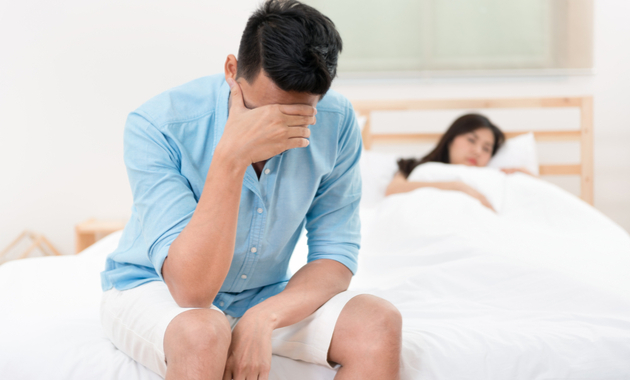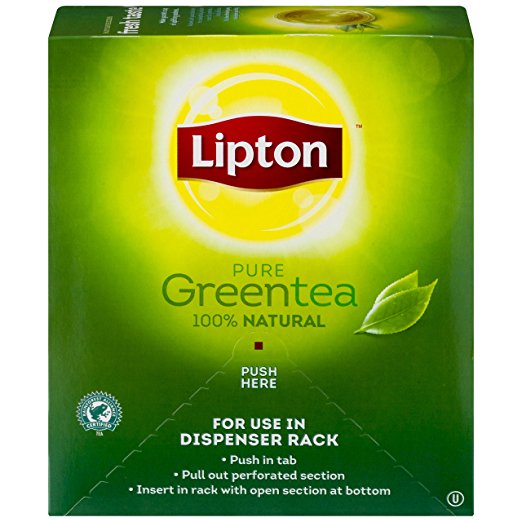Male Menopause
There’s a lot of talk about what women experience as they age. But men are also vulnerable to changes later in life – and those often mirror what women experience.
This is sometimes referred to as “male menopause” – even though it’s not a true medical term. When you think of hormones, you often think of female hormones, but men also have a delicate balance of hormones that can change over time.
It’s All About Hormones
For men, the most prevalent hormone is testosterone. And as you age, you may experience a drop in this hormone level. When that happens, it’s possible you’ll start noticing changes in your body that are symptoms of this change.
Testosterone is made in the testes. When women experience menopause, the ovaries completely stop making hormones and other glands in the body take over. But for men, the testes can produce testosterone until the end of your life.
However, even though testosterone production continues it can decline so much that you feel significant changes in your body. And some of these symptoms are pretty frustrating.
The good news is that there are some ways that your hormone levels can be measured and if your testosterone level is too low, there are treatment options. Many men who experience treatment report a reversal of symptoms.
There are also natural ways to boost testosterone levels so that you can feel like your younger self. While “male menopause” isn’t an official medical diagnosis, it’s certainly common enough that there are some real options for you.
This process usually begins during your middle-age years – around 45-50 years old. It can even occur later. If you begin to notice changes at this time in your life, male menopause may be to blame.
Symptoms of Male Menopause
So how do you know you might have a decrease in your testosterone levels? There are several telltale symptoms you may notice as you age. These should raise some warning flags that you need to pay attention to your body.
First, you may notice a general decline in your energy levels. Men who have testosterone levels that are too low often report feeling fatigued and weak. However, there are other health problems that can cause these symptoms, so it’s important not to ignore warnings your body is giving you.
You may also notice that you’re feeling depressed or down. Low testosterone levels can be responsible for this problem as well. But one of the most common problems with low testosterone levels is a decrease in sexual desire.
Testosterone is the main hormone responsible for libido in both men and women. When your levels are too low, your desire for sex may dwindle. This can have a negative impact on your relationship.
You may also notice that your sleep patterns change. This can occur in a couple of different ways. You may notice that you sleep less and have to deal with a bit of insomnia. You may also feel more tired and sleep more.
It’s also possible for you to experience some changes in your body. For example, you may put on more body fat and see a decline in muscle tissue. You may also notice that your hair begins to thin.
Gynecomastia is another symptom of low testosterone levels. This is the increase in male breast tissue sometimes called “man boobs”. This can cause you to feel swelling and tenderness in your chest.
And some men even report experiencing hot flashes when they’re dealing with this change in hormone levels, though this isn’t a common symptom for men. The bottom line is that you’ll feel changes in your body as your testosterone levels lower.
Diagnosing Male Menopause
Some of the symptoms caused by lower testosterone levels are also caused by getting older. And some of them can be warning signs of more serious health problems. That’s why it’s so important to see your healthcare provider for a proper diagnosis.
In general, your doctor is going to run several tests. He or she will perform a general physical exam – you should be having those every year anyway! You’ll also be asked to describe your symptoms.
This is a really important part of your consultation because you know your own body best. Make sure not to leave out any information. In fact, you may want to write down all the symptoms you’re experiencing so you have it to refer to in the doctor’s office.
Many people leave out symptoms they may find embarrassing. But your doctor has heard it all before, so make sure you don’t let anything stay hidden under the rug. The more information you give, the more help you can have with a proper diagnosis.
Finally, your doctor is likely going to order some tests. Your testosterone levels will need to be measured to see if they are in the normal range. You may also have other tests to rule out medical conditions that could be causing your problems.
Once the blood work comes back from the lab, your doctor will either call you with the results or schedule a follow up appointment to discuss them with you. This will give you an opportunity to go over the report and talk about possible treatment options.
Make sure to discuss any medications you’re currently taking with your healthcare provider. Some medications can specifically cause your testosterone levels to drop and adjusting them can improve the situation.
Treatment for Male Menopause
If you’ve been to the doctor and ruled out other possible causes for your health problems, you should discuss hormone replacement therapy with your doctor. This isn’t always standard practice for men.
Some men who participate in testffffffffffosterone replacement do get relief from their symptoms. This is especially true if you’re middle-aged. But as you get older, the benefits of this type of therapy seem to decrease.
It’s also important to note that sometimes testosterone therapy carries some risks with it. For example, men who take undergo this therapy have an increased risk of prostate cancer. If you have a family history of that illness, this may not be the best treatment for you.
If you do decide to go the route of testosterone replacement therapy, there are a couple of different ways it can be administered. Some men receive testosterone injections while other men choose to take it in pill form.
It’s important to discuss the treatment program thoroughly with your doctor before you begin it. You need to understand both the benefits and risks before adding hormone replacement to your regimen.
Raising Testosterone Levels Naturally
If you’re not sure hormone replacement therapy is right for you, it’s important to consider some natural alternatives that can help you to feel better as you age. There are several action steps that help to boost testosterone without medication.
First, you’ll want to make sure you’re as close to your ideal weight as possible. When you’re overweight you have an excess number of fat cells. These fat cells are living and they produce estrogen.
You may remember that estrogen is the female hormone. When you have too much estrogen being produced by fat cells and floating in the bloodstream, it can cause your testosterone levels to plummet.
Getting as close to your ideal weight as possible will eliminate this extra estrogen and help you to have a proper male hormone balance. But how you get to this ideal weight is important.
Make sure to follow a moderate diet and exercise program. If you lose more than one or two pounds in a given week, your body will go into starvation mode. One of the problems with this is that it can cause your brain to tell your body not to produce testosterone – the exact opposite of your intention.
For this very same reason, you need to make sure that you don’t skip meals. It’s best to eat as many as five small meals throughout the day so you can keep your metabolism going.
Exercise should also be a part of your life. Strength training exercises in particular have been shown to help men boost their testosterone and combat male menopause. Make sure to focus on the large muscles of the body for the most benefit.
Some foods can also help to boost testosterone naturally. For example, almonds and peanuts are known to help increase your levels. Eating foods made from the oils of these nuts is also helpful.
You also need to make sure that your diet consists of plenty of fat. Hormones are actually similar to fats in structure and you need to eat fats in order to produce them in proper quantities.
Sexual activity can also boost testosterone. In particular, studies have shown that having sex in the morning can boost testosterone levels for the rest of the day. Testosterone levels are also at their highest in the morning.
You also need to get plenty of rest. If you don’t get enough sleep, your body doesn’t have the time it needs to stock back up on testosterone. At least eight hours will insure that you have plenty of production time.
One behavior to avoid if you want to keep your hormones balanced is excess drinking. The more alcohol you have, the lower your testosterone levels will be. Make it a goal never to have more than two or three drinks in a day.
You should also avoid some products that can actually mimic female hormones in the body. For example, eating a diet high in soy can actually cause your testosterone levels to go down – that’s because soy is high in estrogen.
Another category of products to avoid is xenoestrogens. These can be found in plastics, soaps, lotions, and household cleaners. They mimic the effect of female hormones and cause you to have lower testosterone.
Supplements to Raise Testosterone
You may also want to consider the use of supplements to help boost your testosterone levels. There are several that can help you to have a natural boost. Make sure to talk with your healthcare provider before trying any new supplements.
Zinc is a critical mineral for producing testosterone in the body. If you have a deficiency in it, you’ll likely have lower testosterone levels. Taking a vitamin that contains the appropriate amount of zinc can help restore your hormonal balance.
Ginseng is a supplement that’s been used in Eastern medicine for centuries. This is a supplement made to specifically help the body stay balanced. This includes hormone balance and it can help you to feel reenergized.
Another herbal supplement that is known for success is called horny goat weed. This can be used to help improve your testosterone levels and to improve your sex drive. It also helps women to improve libido.
Tongkat Ali is an herb that has a proven track record for boosting testosterone levels. This supplement actually helps to nurture the cells in the testicles that produce testosterone. When these cells are healthy and have the right materials, they can do their job properly.
The herb maca also can help your testosterone levels to go up. It’s a South American herb that’s long been used to improve sexual desire in both men and women. It can help your hormone balance to be restored.
In addition to these herbs, there are several herbal formulas on the market specifically designed to support men’s health and hormone balance. These are generally a combination of herbs to boost testosterone production and balance out estrogen hormones.
Restoring your testosterone levels can have a major impact on your quality of life. Instead of feeling tired and down, you’ll feel more energy and an improved mood. You’ll also experience a healthy sex drive.
As you age, it’s natural for your body to become lower in testosterone. However, through a healthy lifestyle and medical treatment or support from supplements, your healthy hormone levels can be restored.
You don’t have to experience the negative symptoms associated with male menopause. As you age, it’s important to pay attention to your body and intervene when you feel you’re experiencing symptoms.
Recommended for Menopause Products












